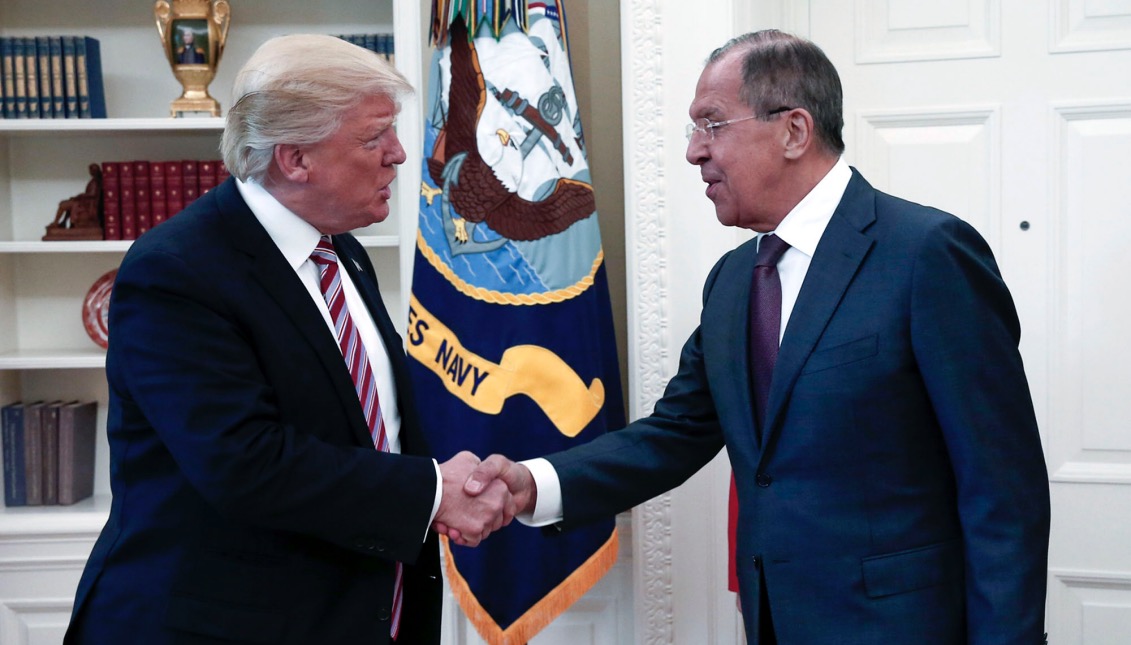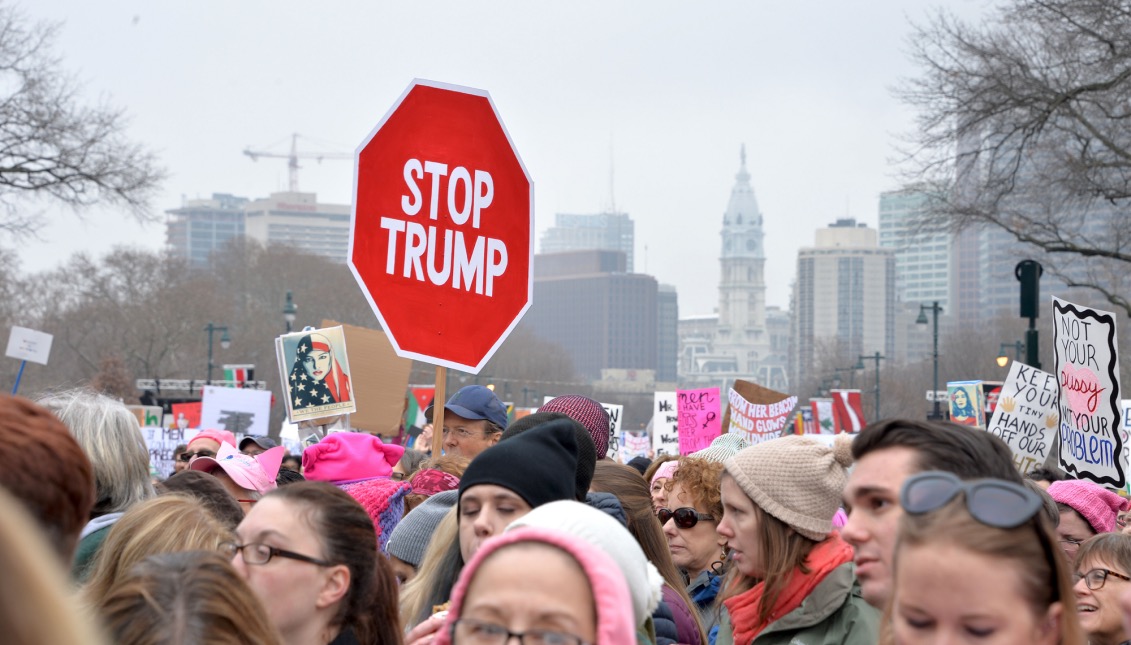
Under a blanket of doubt
The abrupt dismissal of James Comey as director of the FBI followed by a report from The Washington Post regarding the President secretly disclosing highly…
The abrupt dismissal of James Comey as director of the FBI followed by a report from The Washington Post regarding the President secretly disclosing highly classified information to Russian officials, is the latest chapter of a troubled - and still very short - story of Donald Trump in The White House.
When the news broke out, the reactions from the national media did not take long. Several news outlets described the scandal as a self-inflicted crisis, specially because Comey’s dismissal occurred just as he was leading investigations into the alleged involvement of Russia in the 2016 presidencial campaign.

And with good reason: President Trump's discursive turns in front of the former director of the Federal Bureau of Investigations and his cabinet's inability to maintain an official and coherent version of the facts, highlighted once again the great difficulties The White House is facing not only in communicative matters, but in the simple fact of governing without generating a blanket of doubts around them.
In any respected democracy, public confidence is perhaps one of the most important assets for a government. The implementation of policies in the short and medium term depends on it, to a large extent. That is why its loss should be a cause of concern for the Trump administration.
According to a recent poll published by Quinnipiac University, 58% of Americans disapprove of Trump’s management during his first 100 days in office, a pretty high rate of unpopularity for a chairman who’s chair is still brand new in the Oval Office.
But the most revealing fact is not the one that revolves around the popularity of the president, but the one that reflects his level of credibility before the citizenship.
According to the same survey, 61% of US voters think President Donald Trump is not an honest person. To think that transparency is not an inherent feature of the powerful is equivalent to discovering that water gets you wet, but confirming it is still a powerful reason to turn on the alarms.
Precisely on Comey's dismissal, a NBC and Wall Street Journal poll released last Saturday, concluded that only 29 percent of Americans support the dismissal of the FBI's former director. The same poll examined people's opinions about the real reasons for the destitution: 46 percent of Americans think that Trump's decision is to freeze the investigator's research on the potential connections of his campaign with the government of Vladimir Putin.

It’s true that surveys are photographs that record the state of public opinion at a given time. However, the fact that the current administration has such a high level of discredit in such a short time raises at least a serious scenario of legitimacy that could affect the development of its political agenda.
In this sense, it’s worth asking several questions: How can a country's governance be guaranteed when the man who leads it lacks total credibility? Are we facing the beginning of an unprecedented political crisis in almost two decades?
Sanford V. Levinson, a professor of government at the University of Texas and a member of the American Institute of Laws, told Politico magazine that we are not facing yet a constitutional crisis since, as president, Trump has powers to fire officials like the director of the FBI. "We would be facing a crisis if (Jeff) Sessions intervened the investigation or if he tried to stop it".
In the same sense, Elizabeth Price, a professor of law at the University of Florida, said in her comments to the same magazine that she defended the legality of the measure adopted by Trump. "When Deputy Prosecutor (Rod J. Rosenstein) concluded that director Comey usurped the Justice Department's role in its decision not to recommend Hillary Clinton's prosecution, President Trump did the only thing legally possible: to dismiss Comey. The country deserves to have an FBI director who respects his limits as a researcher, and whose reputation is not tainted by inappropriate political behavior", said the analyst.
All of this is true, however, the fact that the president has legal powers to remove a senior official from office does not mean that his decision to remove Comey from the FBI is acceptable. In his OP-ED article published last Saturday by the Washington Post, constitutionalist expert Laurence H. Tribe said that Congress should open a formal investigation to the president "for obstruction of justice"
For Tribe, the figure of "impeachment" is a valuable tool when it comes to curbing officials whose behavior represents a threat to the country's system of government. According to the constitutionalist and professor of law at Harvard, there is no doubt that Trump meets all the requirements to be challenged by Congress.
"Comey’s dismissal will not stop the investigation, but it was an obvious effort to interfere with an investigation involving much more serious national security issues than the ‘third-rate robbery’ that Nixon tried to hide at Watergate”.
"The issue of Russia's interference in the presidential elections and the alleged conspiracy with the Trump campaign put our system at risk and the ability to conduct free and fair elections," Tribe said.
RELATED CONTENT
Although it is still too early to give a definitive answer to these questions, it is worth taking a look at what the social indicators say about the president's controversial decisions.
On April 29, before a crowd of supporters gathered in Harrisburg, the president gave a report of the most significant advances in the first 100 days of his government. The speech, singled out by several analysts as "one of the most divisive by an incumbent president," left much to be desired for his attacks on the press and the ratification of the defiant tone as a communicative style of the new White House tenant.
That tone is precisely what has served as a catalyst for a series of protests in the main cities of the country, known in the world of social organizations as "resistance", a phenomenon that has gradually been taking shape and projects a fertile stage to materialize a possible political crisis.

The fact that millions of women have given the president a "warm welcome" one day after his inauguration; that thousands of Latinos and Asians armed with banners have staged a day without immigrants; that native Americans, environmentalists and even scientists have marched in opposition to the reversals in matters of environmental policy, among others, offer an overview that should concern the president with a simple aspect: the diversity of the sectors that have taken to the streets, and that surpass in ample amount those who attended his inauguration in Washington D.C., is the symptom of an increasingly weak legitimacy.
Although this was a predicted situation after the release of the election results last November, when it became known that Hillary Clinton won the popular vote for a 3 million-vote difference, Trump's administration has been erratic at the time of reporting and implementing a plan of government that can love the bulk of American society.
In just four months of government, Trump has faced at least 15 simultaneous demonstrations in more than 40 cities in the country, a reality that tends to radicalize at the same speed as the president.
But, as the saying goes "there’s no smoke without a fire". The social opposition and the consequent contempt of the president for the good manners, start to catch up. According to a New York Times' article, several Republican members of the Senate, "alarmed by the president's volatility and unpopularity," have begun to distance themselves from the White House in a clear exercise of protecting their political capital.
It is ironic that being a businessman Trump doesn’t seem to realize that governing is first and foremost the art of negotiation, and it is in this area that his administration loses space for dialogue with various political sectors and American society. This is due in part to the quarrelsome character of the president, accustomed to carrying out his will over any consideration, but also because of the scarce openness to criticism and political control. Comey's farewell is a sign of it.
Although many analysts predict that the 45th president of the United States will not complete his first term in the White House, the truth is that Trump has proven to be able to overcome the difficulties. A year ago no one believed in the possibility of winning the election, today many wonder if his hectic presidency will succeed in reaching a happy ending without falling apart in the way. History has the answer.











LEAVE A COMMENT: